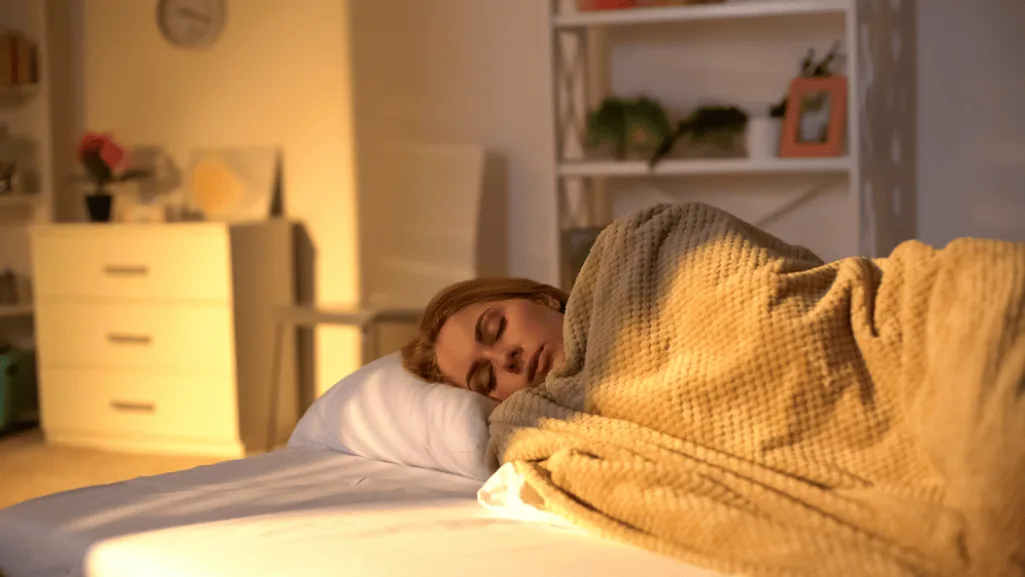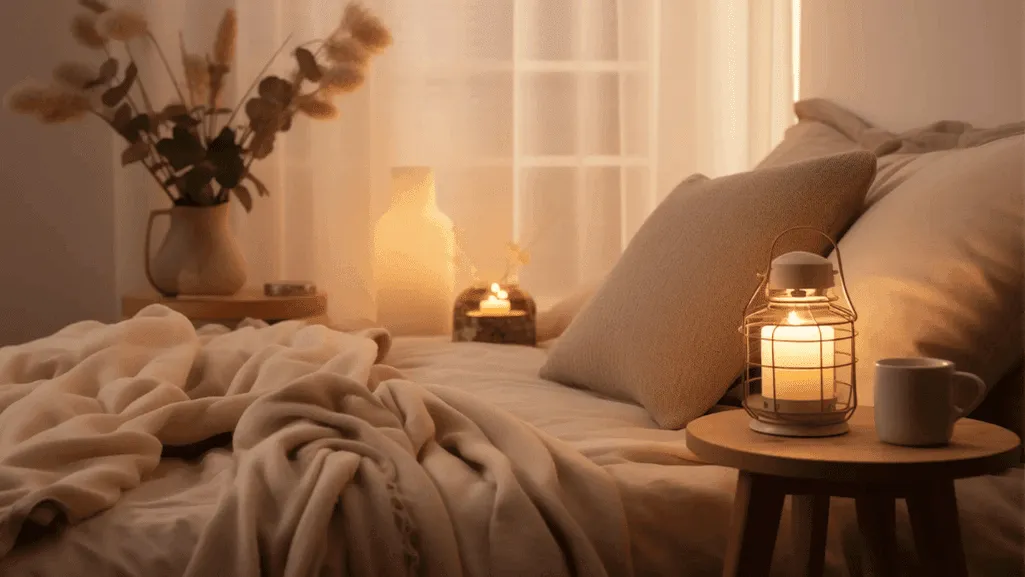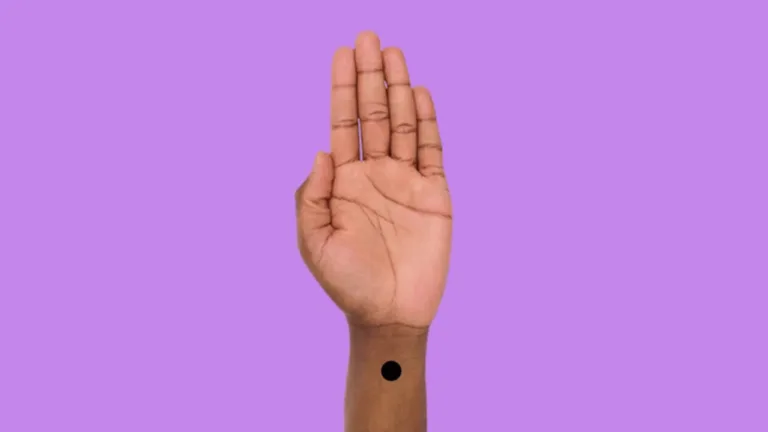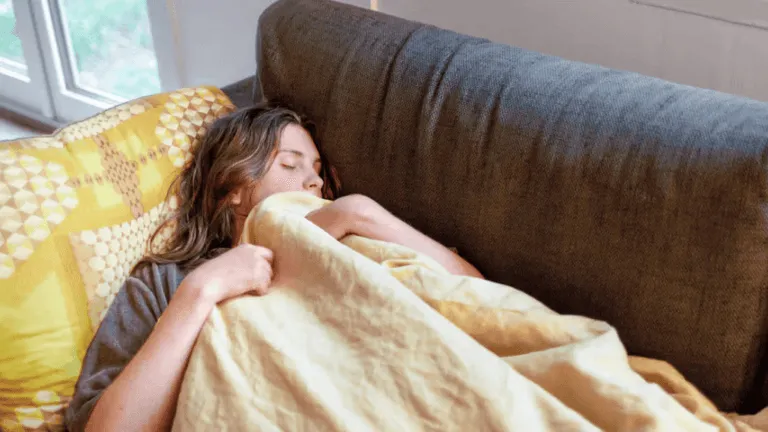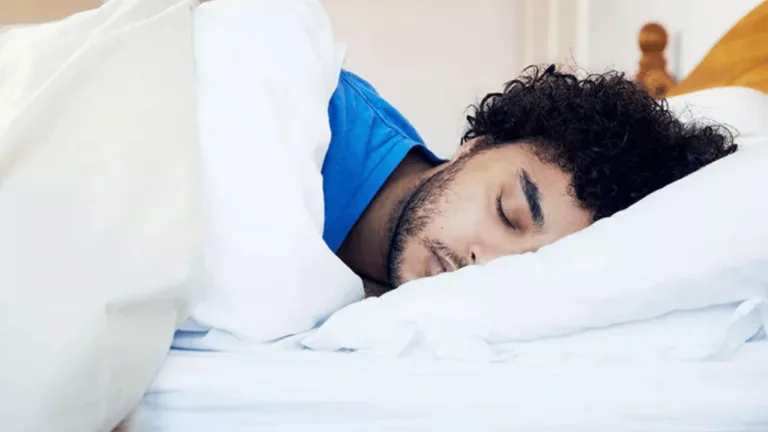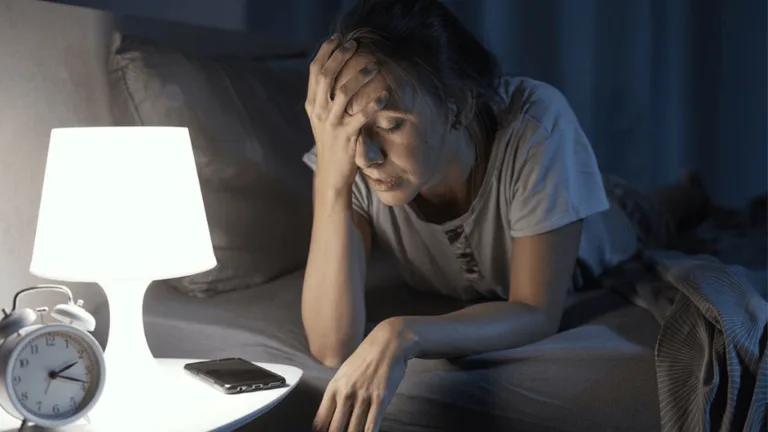Deep sleep is key for our rest, helping with physical repair, mental health, and brain function. Adults usually need 1.5–2 hours of deep sleep each night. This is about 25% of the total sleep time for those sleeping 7-8 hours.
Experts say we spend 10% to 25% of our sleep in deep sleep. For an eight-hour sleeper, this means 48 minutes to two hours of deep sleep. But, sleep needs can differ, with adults needing five to 11 hours 30 minutes on average.
Getting enough sleep is important, but so is sleep quality and good sleep habits. Stress, aging, sleep disorders, and bad sleep habits can affect deep sleep. It’s crucial to focus on both sleep quantity and quality.
Key Takeaways
- Adults need around 1.5–2 hours of deep sleep per night, which is about 25% of total sleep time for those getting the recommended 7-8 hours.
- The exact amount of deep sleep needed varies from person to person and can change from night to night.
- Focusing on getting enough overall sleep is key, as the brain self-optimizes the time spent in each sleep stage.
- Factors such as stress, aging, sleep disorders, and poor sleep hygiene can impact the amount and quality of deep sleep obtained each night.
- Prioritizing sleep quality and maintaining good sleep habits are essential for ensuring adequate deep sleep and overall health.
Why Deep Sleep is Essential for Health and Well-being
Deep sleep, also known as slow-wave sleep, is key for health. It helps the body repair and grow. Recent research shows it’s vital for tissue growth and repair, immune system function, memory consolidation, learning, and mood regulation.
Adults need 10-15% of their sleep to be deep, about 1.5 to 2 hours each night. But, deep sleep decreases with age. To improve sleep, keep regular hours and avoid screens before bed.
The Role of Deep Sleep in Physical Restoration
Deep sleep helps the body repair and grow. It builds bone and muscle and strengthens the immune system. It’s essential for healing and hormone regulation, including growth hormone for tissue growth and repair.
“Deep sleep is like a deep clean for the brain, allowing it to clear out toxins and waste products that accumulate during wakefulness.” – Dr. Charlene Gamaldo, Medical Director of Johns Hopkins Center for Sleep
How Deep Sleep Supports Mental Health and Cognitive Function
Deep sleep is also vital for mental health and learning. It helps the brain process memories and learn new things. It also helps with mood regulation, preventing depression and anxiety. Choosing the right pillow can improve sleep and mental well-being.
Getting enough deep sleep each night supports your body’s healing. It boosts your immune system, improves memory consolidation and learning, and helps with mood regulation. Aim for 7 to 9 hours of sleep and create a sleep-friendly environment for better health.
Understanding the Stages of Sleep
The sleep architecture is fascinating. We go through different sleep stages every night. Sleep is split into two main types: non-rapid eye movement (NREM) and rapid eye movement (REM) sleep. NREM sleep has three stages: N1, N2, and N3.
We go through four to five sleep cycles each night. Each cycle lasts about 90 to 110 minutes. Most of our sleep (around 75%) is in NREM stages.
Non-Rapid Eye Movement (NREM) Stages
NREM sleep helps our bodies and minds recover. It has three stages:
- Stage N1: This is the lightest sleep stage. It’s a transition from being awake to asleep. It’s a small part of our sleep time.
- Stage N2: This stage has sleep spindles and K-complexes in brain waves. It makes up about 45% of our sleep time.
- Stage N3 (Slow-Wave Sleep): Known as deep sleep, it has slow delta waves. It’s key for physical repair, hormone balance, and immune health.
Rapid Eye Movement (REM) Sleep
REM sleep is when we dream vividly and our brain is active. Our muscles are paralyzed, so we can’t act out our dreams. It’s important for emotional processing, memory, and thinking.
“Sleep is the golden chain that ties health and our bodies together.” – Thomas Dekker
The Sleep Cycle and How It Changes Throughout the Night
As the night goes on, how much time we spend in each stage changes. Early in the night, we spend more time in deep sleep (stage N3). Later, REM sleep gets longer and more frequent. This change helps us rest and recover fully.
Knowing about the different sleep stages is key to staying healthy. Good sleep efficiency and a restful sleep environment are vital. They help our bodies and minds work their best.
How Much Deep Sleep Do You Need
The amount of deep sleep needed varies by age, health, and sleep environment. Most adults need 1.5-2 hours of deep sleep each night. But, individual needs can differ.
The Centers for Disease Control and Prevention (CDC) suggest adults get 7 hours of sleep nightly. About 25% of this should be deep sleep. So, for 7 hours of sleep, that’s about 105 minutes of deep sleep.
Factors That Influence Deep Sleep Requirements
Several factors can affect how much deep sleep you need, including:
- Age: Kids and teens need more deep sleep than adults. Deep sleep decreases with age.
- Health conditions: Sleep disorders, medical issues, and some medications can impact deep sleep quality and amount.
- Sleep environment: A cool, dark, quiet bedroom helps promote deeper sleep.
Age-Related Changes in Deep Sleep Needs
Age is key in determining deep sleep needs. Babies sleep the most, needing 14-17 hours daily. As kids grow, their sleep needs decrease. The CDC suggests the following sleep times for different ages:
- Newborns (0-3 months): 14-17 hours
- Infants (4-12 months): 12-16 hours
- Toddlers (1-2 years): 11-14 hours
- Preschoolers (3-5 years): 10-13 hours
- School-aged children (6-12 years): 9-12 hours
- Teenagers (13-18 years): 8-10 hours
As adults get older, they spend less time in deep sleep. Older adults often have lighter, more broken sleep, with less deep sleep. This can lead to daytime tiredness and other sleep problems with age.
“Regular sleep disturbances may be caused by conditions such as obstructive sleep apnea, pain, REM sleep disorder, narcolepsy, mental health conditions like depression or anxiety, as well as age-related complications, medications, and traumatic brain injuries.” – Brian Meusborn, PA-C
Good sleep habits, like a regular sleep schedule and a relaxing bedtime routine, are important. Also, addressing health issues can help ensure enough deep sleep at any age.
Signs You’re Not Getting Enough Deep Sleep
Do you feel tired and groggy during the day, even after a full night’s sleep? This could mean you’re not getting enough deep sleep. Deep sleep is key for physical repair, mental health, and thinking clearly. Not getting enough can cause symptoms that affect your daily life.
Daytime Fatigue and Sleepiness
Daytime fatigue and sleepiness are common signs of not getting enough deep sleep. If you’re always tired during the day, even after sleeping well, it’s a sign. This can build up a sleep debt, hurting your performance during the day.
Mood Changes and Irritability
Lack of deep sleep can also mess with your mood, making you more irritable and anxious. Feeling easily frustrated or depressed could mean you’re not sleeping deeply enough. This can harm your relationships and overall happiness.
Impaired Memory and Cognitive Function
Deep sleep is vital for memory and thinking clearly. Without enough, you might struggle to focus, remember things, or make decisions. If you’re having trouble with these, it could be a sign of not getting enough deep sleep.
If you’re always tired, moody, or struggling to think, it’s time to improve your sleep. Try going to bed and waking up at the same time every day. Make your bedroom a sleep haven and practice good sleep habits. If these problems don’t go away, see a doctor to check for sleep disorders or health issues.
Strategies to Improve Deep Sleep Quality and Quantity
Getting enough deep sleep is key for good health. To boost your deep sleep, try these tips:
Stick to a regular sleep schedule. Go to bed and wake up at the same time every day. This helps your body’s clock stay in sync.
Make a calming bedtime routine. This could be reading, a warm bath, or deep breathing. These activities tell your body it’s time to sleep.
Make your bedroom comfy, quiet, dark, and cool. Get a good mattress and pillows. Use blackout curtains or a white noise machine to block out noise.
“Nearly everyone experiences an occasional sleepless night; if sleep troubles are frequent, it’s wise to see a healthcare provider to find and treat any sleep quality issues.”
Exercise can help your sleep, but stop working out a few hours before bed. Aim for 30 minutes of moderate exercise most days.
Deal with stress and anxiety through journaling, yoga, or therapy. Stress can make it hard to sleep deeply, so finding ways to manage it is crucial.
Don’t drink too much caffeine, alcohol, or nicotine before bed. These can mess up your sleep and cut down on deep sleep.
By following these tips and focusing on sleep hygiene, you can enhance your deep sleep. This leads to better health and well-being.
Conclusion
Deep sleep is key for our health and happiness. It helps our bodies and minds heal and work better. Adults need 84-108 minutes of deep sleep each night, which is about 20% of the 7-9 hours we should sleep.
Children need more deep sleep, and older adults sleep less deeply. This shows how sleep changes as we age.
Not getting enough deep sleep can harm us. It weakens our immune system and makes it hard for our bodies to fix themselves. It also raises the chance of getting sick with serious diseases like heart disease.
To sleep better, we should follow good sleep habits. This means going to bed and waking up at the same time every day. We should also make our bedrooms comfy and exercise regularly. Tools that track our sleep can help us see how we’re doing and find ways to get better.
If you still can’t sleep well, even with good habits, you might need help. A doctor or sleep expert can give you advice and treatments. They can help if you have sleep problems or other issues that affect your sleep.
By focusing on deep sleep, we can improve our health and well-being. This helps us stay physically and mentally strong for a long time.



